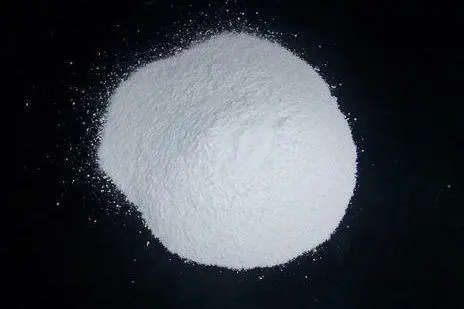Cracking the Code: How to Identify Premium Dicalcium Phosphate
2023-08-16
Introduction:
In the world of industrial and agricultural applications, dicalcium phosphate (DCP) is a key ingredient used for various purposes. Whether it's in livestock feed, dietary supplements, or pharmaceuticals, the quality of DCP plays a crucial role in ensuring optimal outcomes. Today, we will explore the intricacies of identifying premium Dicalcium Phosphate and understand the importance of terms like calcium hydrogen phosphate, DCP, and dicalcium phosphate mineral.
Understanding Dicalcium Phosphate:
Dicalcium phosphate, also known as calcium hydrogen phosphate, is a mineral compound that consists of calcium cations (Ca2+) and phosphate anions (HPO4 2-). It is commonly derived from phosphate rock, which undergoes a series of chemical reactions to yield a purified, highly concentrated form of DCP.
Identifying Premium Dicalcium Phosphate:
- Purity Levels: Premium Dicalcium Phosphate should have high purity levels, typically above 98%. This ensures minimal impurities and contaminants, resulting in a safe and effective product. Look for suppliers that provide detailed purity certificates and adhere to strict quality control measures.
- Particle Size: The particle size of DCP can significantly impact its solubility and absorption properties. Premium Dicalcium Phosphate should have a consistent and uniform particle size distribution, ensuring optimal dissolution rates and bioavailability. Fine and evenly sized particles are preferred for better mixing and dispersion in a variety of applications.
- Heavy Metal Content: The presence of heavy metals in DCP can pose potential health risks. Therefore, it is crucial to source Dicalcium Phosphate from reputable suppliers who follow stringent quality standards and conduct thorough heavy metal testing. Ensure that the DCP you choose meets international safety regulations for heavy metal content.
- Fluorine Levels: Excessive fluorine content in Dicalcium Phosphate can adversely affect animal health and may even hinder certain industrial processes. High-quality DCP should have controlled levels of fluorine, ensuring its safe usage without compromising intended applications.
- Regulatory Compliance: Premium Dicalcium Phosphate manufacturers should comply with relevant regulations and certifications. Look for suppliers who meet industry standards such as Good Manufacturing Practices (GMP) and are certified by renowned regulatory bodies like the Food and Drug Administration (FDA) or the European Medicines Agency (EMA).
Conclusion:
Choosing the right Dicalcium Phosphate is essential for industries relying on its applications. By understanding the key aspects of identifying premium quality DCP, such as purity levels, particle size, heavy metal and fluorine content, and regulatory compliance, buyers can make informed decisions.
When it comes to acquiring Dicalcium Phosphate, opt for suppliers who prioritize product quality, undertake rigorous testing, and offer transparent documentation on key parameters. By cracking the code for identifying premium Dicalcium Phosphate, you ensure the success and safety of your industrial or agricultural endeavours.


